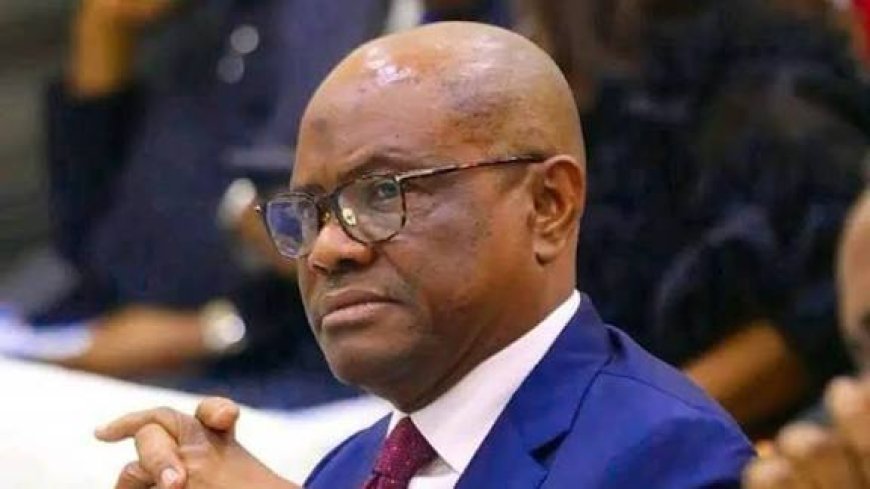By Prof Bolaji O. Akinyemi
There are moments in a nation’s life when symbols speak louder than constitutions. The confrontation between the Minister of the Federal Capital Territory, Nyesom Wike, and Lieutenant A.M. Yerima of the Nigerian Navy was one such moment. Beyond the viral videos and social media banter lies a deeper truth: we are witnessing the slow but steady collapse of Nigeria’s democratic order and the creeping militarisation of our civic space.
Social Media is awash with several options on the saga, but direct reaction to my article titled; "The Cost of Keeping Wike: When Political Loyalty Becomes a National Liability and International Embarrassment" necessitated this update.
A Pattern of Civil Subjugation
We have been here before. How can we so soon forget the trauma of the abduction of Governor Chris Ngige of Anambra State by a team of policemen in 2003, or the sudden withdrawal of the security details of the Chief Security Officer of River State, Governor Rotimi Amaechi to the Magodo incident where police officers defied Governor Sanwo-Olu in broad daylight, under the order of the Inspector General of Police and according to the officer who led the team, the excise was to the knowledge of the Anthoney General of the Federation, each episode etched another line in Nigeria’s tragic script of civil humiliation before the uniformed class. Yesterday it was the police; today, the military. The pattern is consistent: civil authority is routinely subordinated to the gun. Right or wrong just get those with guns on your sides and you will automatically right your wrong. That is the unfortunate communication of this episode. But behind such illegality is the influence peddling of our elite class against constitutional order.
When the Uniform Becomes the Law
The Navy man stood on dry ground with no body of water in sight and no external threat to our territorial integrity. Lieutenant Yerima’s defiance, under the pretext of “obeying superior orders,” was not an act of gallantry—it was the reenactment of a dangerous culture that elevates the uniform above the constitution. His stance may have pleased the public that finds Wike overbearing, but it sends a chilling signal to the republic that a uniformed officer; military, police or paramilitary can obstruct anyone in the line of executive duty, an extension of presidential authority and get away with it.
This precisely, is how democracy dies; not in coups, but in creeping insubordination dressed as discipline.
The Learned Silk Speaks Truth to Power
Prof. Sebastine Hon, SAN, a distinguished constitutional lawyer and author, has provided a necessary legal compass through his erudite intervention. In his words, “The obligation to obey the orders of a superior does not include orders that are palpably illegal or manifestly unjust.” Citing the Supreme Court decision in Onunze v. State (2023), he reminds us that every officer’s oath is first to the Constitution, not to any superior.
Prof. Hon further anchored his position on Nigerian Air Force v. James (2002), reaffirming that no military or paramilitary personnel enjoy immunity for obeying illegal orders. To quote him directly:
“Mr. Wike stood in loco the President of Nigeria and Commander-in-Chief of the Armed Forces. Consequently, even if the superior officer were still in service, he would not disobey Mr. Wike or obstruct him from entering the land. This was an affront to the civil authority of Mr. President.”
It is, therefore, not the brashness of Wike’s method that defines this moment but the brazenness of Yerima’s disobedience that exposes the fragility of our democracy.
The Consequence of a Conspiracy
Let us be clear: what Wike faced was not personal humiliation; it was institutional backlash. The military felt empowered because the President himself had earlier undermined the sanctity of civil rule by declaring a State of Emergency in Rivers State an action that, whether politically expedient or not, struck at the heart of democratic order.
When a democratically elected government is threatened by federal fiat, it signals to every uniformed officer that civil authority is optional. Thus, Wike has only come face to face with the creature he and the President jointly acted as the midwife, the ghost of militarism returning to haunt the polity.
The Lessons We Must Learn
We must humbly reflect on our journey to this precipice of lawlessness. The rule of law, once compromised in one corner of the federation, soon becomes a national casualty. The lesson from the learned silk is clear: no order is superior to the Constitution, and no uniform is greater than the civil authority it is meant to protect.
If we do not correct this drift, tomorrow’s headlines may not be about a minister and a lieutenant—it may be about a President and a general. The line between civil rule and military cultism is thinner than we think.
Conclusion
Nigeria’s democracy is not dying suddenly; it is being strangled gradually by acts of defiance, impunity, and misplaced applause. Those who cheered Yerima today may wake up under the boots of tomorrow’s arbitrariness.
Let us therefore return to the Constitution; not as a document to quote, but as a covenant to live by. For when the rule of law falls silent, the only sound left will be the echo of marching boots.
... Prof Akinyemi is Nigeria's former External Affairs minister















